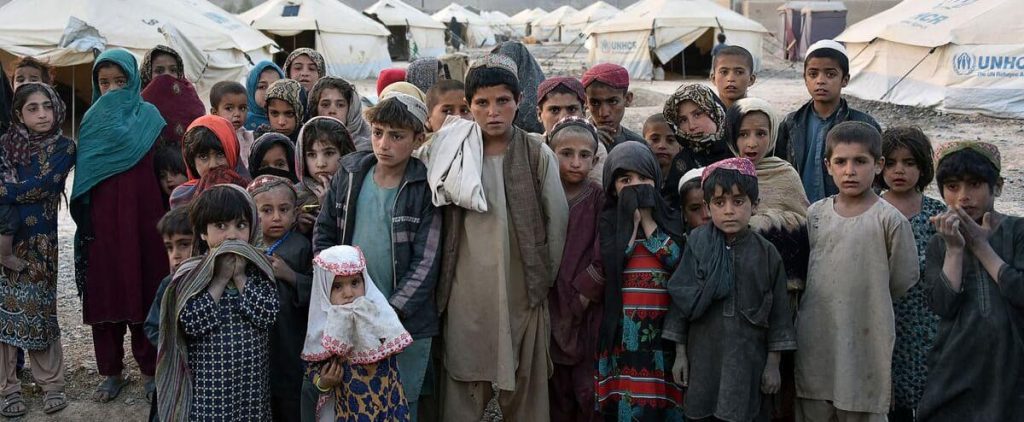A representative of the Ministry of Refugees said that the fighting in Kandahar province in southern Afghanistan has displaced some 22,000 families over the past month.
They “all fled from precarious areas in the western, northern and southern suburbs of Kandahar, the big city in southern Afghanistan, to safer areas” in the city center, said Dost Mohammad Diriab, director of the provincial refugee service. The cradle of the Taliban.
“We were only able to build four camps to house these displaced people in the city (…) Afghan businessmen are helping us to provide food,” Mr. Diab said.
These 22,000 families represent about 150,000 people, and the National Bureau of Statistics estimates that a family in Afghanistan consists of seven members on average.
“When the fighting broke out, we fled with my cousins, women and children to the city center,” Hafez Muhammad Akbar told AFP.
“Now we live with 20 people from the same family in a place that doesn’t even have a toilet. I have no idea how long we will be staying there.”
During the fighting, two members of the Khan Muhammad family were “wounded while in hospital”.
I never imagined this would happen to us. If they (Afghan forces and Taliban) want to fight, let them go to the desert and fight. They should not destroy the city. Whoever wins cannot control the ghost town.”
According to the deputy governor of Kandahar province, Lalay Dastagiri, “the fighting continues in the southern, northern and western suburbs of Kandahar.”
He added that “the neglect of some security forces (…) opened the way for the Taliban, which allowed them to approach this point,” noting that the provincial authorities “are in the process of reorganizing all security forces.”
With over 650 thousand inhabitants, Kandahar is the country’s second most populous city, after Kabul. The Taliban had made it the focus of their power when their regime, based on a hardline interpretation of Islam, ruled Afghanistan between 1996 and 2001.
After being pushed out of power by an international coalition led by the United States, they led an insurgency against the authorities in Kabul for 20 years, with the support of the international community.
In May, they launched an all-out offensive against Afghan forces, using international forces in the country, capturing large rural areas, and besieging many provincial capitals.

“Total coffee aficionado. Travel buff. Music ninja. Bacon nerd. Beeraholic.”







More Stories
Screens are still very present in Swedish schools
The world in pictures | Journalism
[IMAGES] Someone tries to set himself on fire outside Trump's courthouse